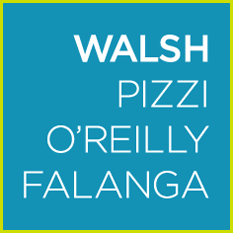Client Alert – Families First Coronavirus Response Act, H.R. 6201 Signed Into Law
On the evening of March 18, 2020, President Trump signed into law the Families First Coronavirus Response Act, H.R. 6201. The new law includes the Emergency Family and Medical Leave Expansion Act (“EFMLEA”), which provides paid family leave, and the Emergency Paid Sick Leave Act (“EPSLA”), which provides paid sick leave, for certain employees affected by COVID-19. Covered employers are eligible for refundable tax credits for offering this emergency family and/or paid sick leave.
- Family Leave
The EFMLEA is an expansion of the existing Family and Medical Leave Act (“FMLA”), with modified definitions and benefits that apply to COVID-19 related leave. While the FMLA applies to employers with 50 or more employees, the EFMLEA applies to companies with less than 500 employees, so a greater number of employees may receive the EFMLEA benefits.
Employees may be eligible for twelve weeks of paid family leave if they cannot work or telework because they need to care for their minor child whose school or child care service is closed or unavailable due to a COVID-19 related public health emergency. While the first 10 days of leave may consist of unpaid leave, or may be paid through an employer-sponsored paid time off benefit, leave after those 10 days will be paid at a rate of 2/3 of the employee’s regular pay up to $200 per day and $10,000 total for up to 12 weeks.
The EFMLEA also only requires that an employee have been employed by the employer for at least (30) thirty days, instead of the FMLA’s twelve months and 1,250 hour requirement. Employees who are health care providers or emergency responders may be excluded by their employers from EFMLEA protection.
It appears that the FMLA modifications for employer coverage (500 employees or less) and employee eligibility (employed for 30 days) only apply to leave under the EFMLEA, meaning leave to care for a minor child whose school or child care service is closed or unavailable due to a COVID-19 related public health emergency. The remainder of the FMLA provisions appear to be only applicable to employers with 50 or more employees and to employees who have worked for an employer for twelve months and 1,250 hours, and FMLA benefits for non-COVID-19 related leave remains available to eligible employees.
- Sick Leave
The EPSLA provides employees with paid sick leave for COVID-19 related issues. It applies to all employers with less than 500 employees.
The EPSLA provides that an employee may be eligible for paid sick leave if he or she is unable to work or telework because: the employee is subject to a federal, state, or local quarantine or isolation order, the employee has been advised by a health care provider to self-quarantine, the employee is experiencing COVID-19 symptoms and is seeking a medical diagnosis, the employee is caring for an individual who is subject to quarantine or isolation, or the employee is caring for a child whose school or child care has been closed or is unavailable.
Full-time employees are entitled to 80 hours of paid sick time, while part-time employees may receive pay for the number of hours the employee works, on average, over a two-week period. Employees may receive up to $511 per day and $5,110 in total of paid sick time if the leave is a result of their own illness, or 2/3 of the employee’s regular pay if the leave is a result of caring for a family member. Employers may not require an employee to use other paid time off benefits before using this paid sick time, and the EPSLA sick leave is in addition to any paid time off benefits that are already provided by a company.
- Regulations
The Secretary of Labor has the authority to issue regulations excluding certain health care providers and emergency responders and exempting small businesses with fewer than 50 employees when the imposition of these benefits would jeopardize the viability of the business as a going concern.
- Effectiveness
The Families First Coronavirus Response Act goes into effect on April 2, 2020. These benefits are scheduled to expire at the end of 2020.
Walsh Pizzi O’Reilly Falanga LLP has prepared the content of this alert for general informational purposes. The content should not be considered advice, recommendations, or an offer to perform services. You should not act upon any information provided in this alert without seeking professional legal counsel from an attorney licensed to practice law in your jurisdiction. No representations are being made as to the completeness or accuracy of the information contained herein.

